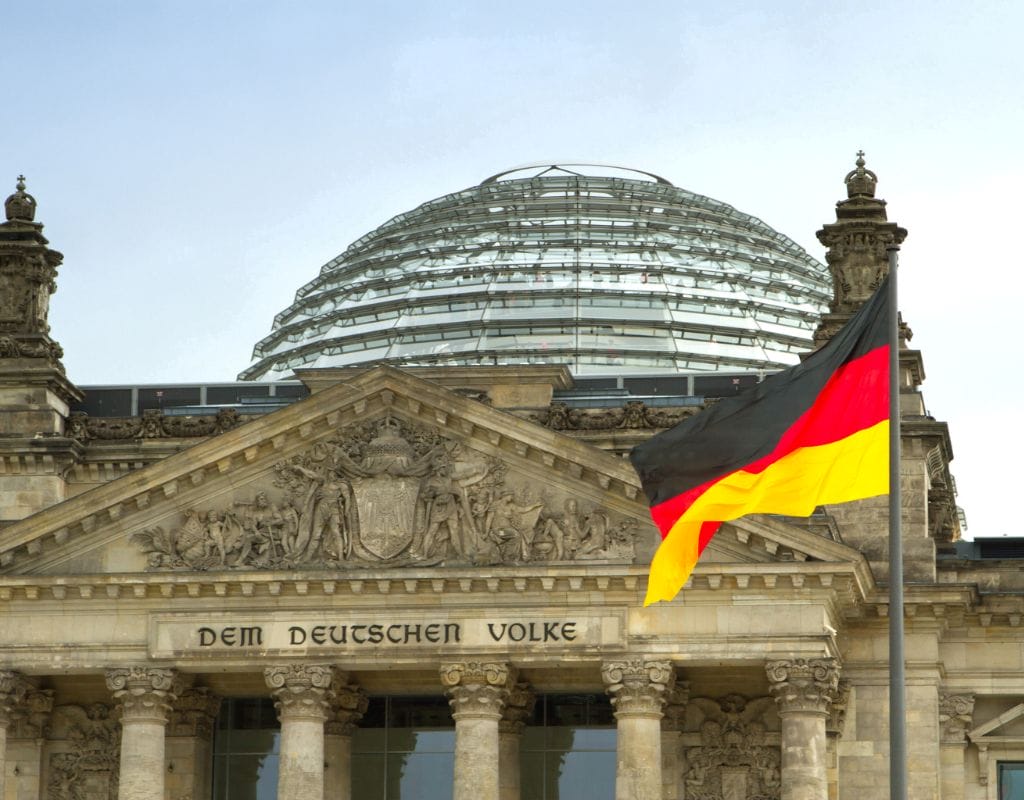Understanding Germany through an American Perspective
Germany is a land of contrasts, blending ancient traditions with modern innovation. For American travelers, understanding these cultural nuances can enhance their experience. Here’s a deeper dive into Germany’s customs and how they compare to American culture.
Greeting Rituals and Communication
German greetings are formal and reserved. In contrast to the casual greetings common in the U.S., Germans prefer a firm handshake and address each other by their titles (e.g., “Herr” or “Frau”) followed by their last name. Direct eye contact during conversations is crucial, as it signifies respect and attentiveness. In Southern Germany, particularly in Bavaria, the greeting “Grüß Gott” (literally “God greet you”) is commonly used, reflecting the region’s Catholic heritage.
Cultural Tip: Unlike in the U.S., where small talk is frequent, Germans typically engage in more meaningful, direct conversations.
Food & Drink
German cuisine varies significantly by region. In Bavaria, hearty dishes like “Schweinshaxe” (pork knuckle) and “Weißwurst” (white sausage) are staples, while the North is known for its seafood, such as herring and “Labskaus” (a type of corned beef hash). Unlike the American habit of quickly eating on the go, meals in Germany, particularly dinner, are a more leisurely affair, often involving multiple courses and plenty of time to savor.
Regional Note: Each region also boasts its own beer styles, from the Bavarian “Helles” to Cologne’s “Kölsch,” with many cities having local breweries and unique brews.
Dress Sense and Attire
While Germans, like Americans, appreciate comfort in everyday attire, there is a noticeable emphasis on practicality and quality. In professional settings, Germans dress more conservatively compared to Americans, favoring darker suits and modest accessories. In regions like Hamburg, known for its rainy weather, a good quality raincoat is almost a staple. Conversely, in cities like Berlin, a more eclectic and casual style is embraced, reflecting the city’s vibrant and diverse culture.
Cultural Insight: Germans typically dress more formally for events, with less emphasis on “casual Fridays” compared to the U.S.
German Punctuality
Punctuality is a cornerstone of German culture. Being even a few minutes late is considered rude, especially in professional settings. This contrasts with the more relaxed attitude toward time often found in the U.S., where being a few minutes late is generally more acceptable. In regions like Baden-Württemberg, where Swabian industriousness is a cultural trait, punctuality and meticulousness are particularly emphasized.
Tip: If invited to a German’s home, it’s polite to arrive on time and bring a small gift, such as flowers or wine.
Public Conduct and Etiquette
Public behavior in Germany is governed by a sense of order and respect. Unlike in many American cities, where loud conversations and visible displays of affection might be more common, Germans value a quieter, more restrained public demeanor. In places like Munich and Hamburg, the use of public transportation comes with an unspoken code of conduct—keeping conversations to a minimum and respecting personal space.
Cultural Difference: Smoking in public areas is more common in Germany than in many parts of the U.S. It’s important to be aware of this, especially in outdoor cafes and beer gardens.
Business Decorum
German business culture is formal and hierarchical. Meetings are highly structured, starting promptly and following a strict agenda. Unlike in the U.S., where meetings might begin with casual small talk, Germans get straight to the point. The exchange of business cards is also more formalized, often involving a ritualistic presentation and receipt.
Business Tip: Hierarchy is respected in Germany; addressing colleagues with their proper titles and acknowledging seniority is important.
Tipping Culture
Tipping in Germany is less customary than in the U.S. A small tip or rounding up the bill is generally sufficient. For instance, if your meal costs €18.50, leaving €20 would be considered a good tip. This differs from the U.S., where tips of 15-20% are often expected. This reflects a broader cultural norm in Germany, where service is considered part of the meal’s cost, and servers are paid a living wage.
Retail Etiquette and Negotiation
Shopping in Germany is typically a no-bargain experience, unlike in the U.S., where negotiating prices might be more common in certain settings. Store employees are generally helpful but reserved, and politeness is expected from both parties. Store hours are also more restricted, with many shops closed on Sundays, reflecting Germany’s respect for leisure time.
Efficiency in Public Transport
Germany’s public transport system is renowned for its efficiency. Trains, buses, and trams run on precise schedules. This is a sharp contrast to the often car-centric transportation culture in the U.S. In cities like Munich and Berlin, public transport is not only a convenience but a way of life. Remember to validate your ticket before boarding to avoid fines—a system less familiar to many Americans used to unlimited transport passes.
Regional Note: In rural areas, like the Black Forest, public transport may be less frequent, and a car might be more practical.
Exploring Tourist Sites
Germany’s historical and cultural sites require respect for local customs. Many castles, churches, and museums have rules that visitors should follow. Unlike in the U.S., where there is often a more relaxed approach to tourist behavior, Germans expect visitors to adhere to a more reserved conduct.
Visitor Insight: In smaller towns, especially in more conservative regions like Bavaria, modest attire in religious sites is expected.
Addressing Conflicts
Germans prefer direct and honest communication, even when addressing conflicts. This can be a stark contrast to the more indirect or conciliatory approach often seen in the U.S. If a misunderstanding occurs, addressing it openly and respectfully is key.
Cultural Difference: Unlike in the U.S., where resolving conflicts might involve more diplomacy, Germans value a straightforward discussion to resolve issues efficiently.
Regional Diversity
Each German region has its own distinct cultural identity, from the beer gardens of Bavaria to the avant-garde art scene of Berlin. The diversity extends to dialects, cuisine, and even local customs. Exploring these regional differences provides a deeper understanding of Germany’s rich cultural tapestry.
Regional Insight: Travel to different regions like the Rhineland or Saxony to experience Germany’s varied dialects, cuisines, and customs, which offer a stark contrast to more homogenous cultural areas in the U.S.
Visit our Germany Profile to discover all the essential information about culture, history, and practical tips for your trip


